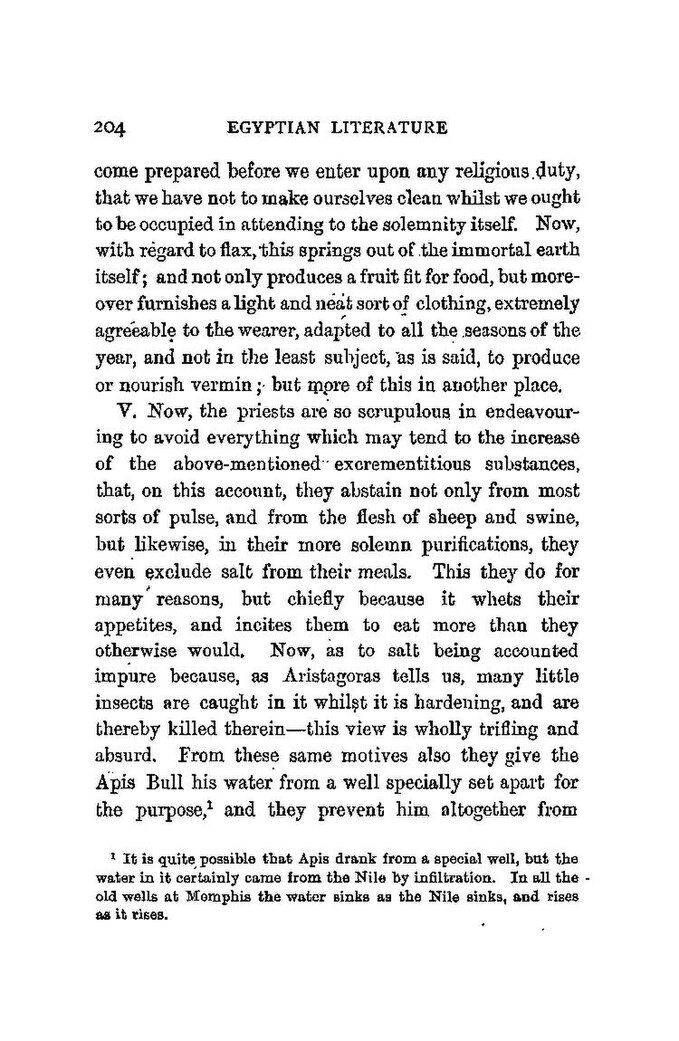come prepared before we enter upon any religious duty, that we have not to make ourselves clean whilst we ought to be occupied in attending to the solemnity itself. Now, with regard to flax, this springs out of the immortal earth itself; and not only produces a fruit fit for food, but more over furnishes a light and neat sort of clothing, extremely agreeable to the wearer, adapted to all the seasons of the year, and not in the least subject, as is said, to produce or nourish vermin; but more of this in another place.
V. Now, the priests are so scrupulous, in endeavouring to avoid everything which may tend to the increase of the above-mentioned excrementitious substances, that, on this account, they abstain not only from most sorts of pulse, and from the flesh of sheep and swine, but likewise, in their more solemn purifications, they even exclude salt from their meals. This they do for many reasons, but chiefly because it whets their appetites, and incites them to eat more than they otherwise would. Now, as to salt being accounted impure because, as Aristagoras tells us, many little insects are caught in it whilst it is hardening, and are thereby killed therein—this view is wholly trifling and absurd. From these same motives also they give the Apis Bull his water from a well specially set apart for the purpose,[1] and they prevent him altogether from
- ↑ It is quite possible that Apis drank from a special well, but the water in it certainly came from the Nile by infiltration. In all the old wells at Memphis the water sinks as the Nile sinks, and rises as it rises.
